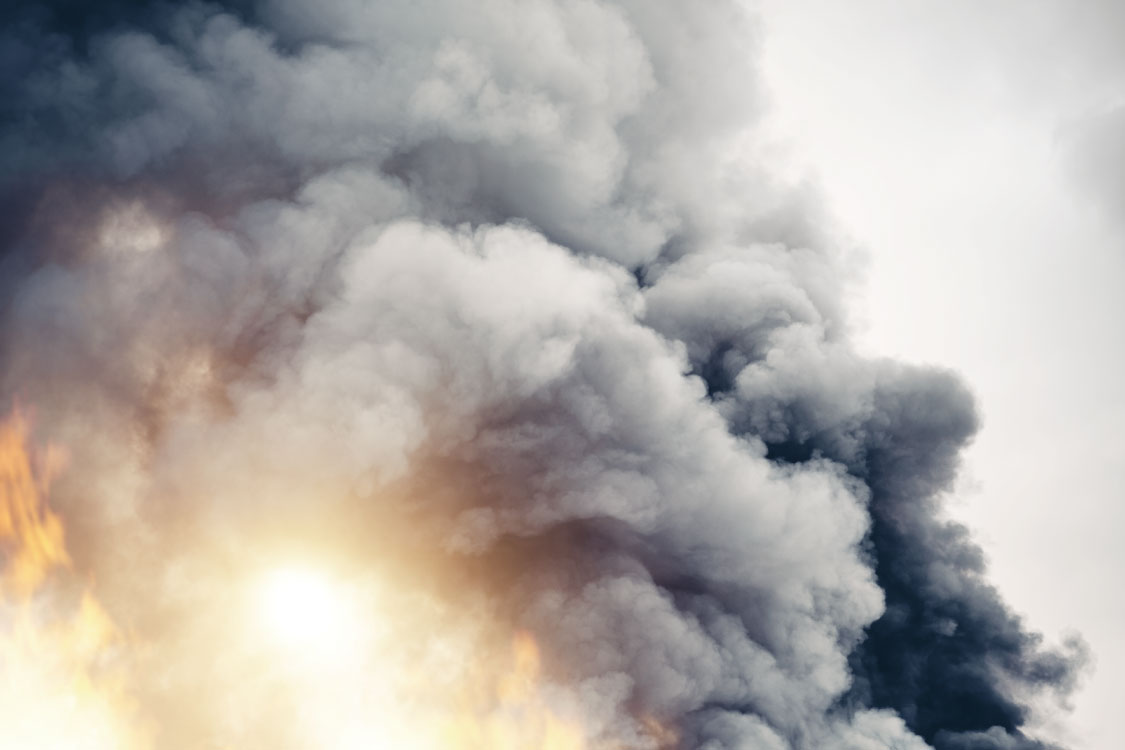The Main Causes of Fire in the Hospitality Industry
Every industry has its own particular fire risks that it has to be aware of, and the hospitality industry is no different. What hospitality has to worry about that is extra, however, is that it tends to have multiple customers on the premises at any one time, and in the case of a hotel, that could be across several floors, all in individual rooms.
Fire prevention and knowing how to deal with a fire are therefore things that should be right at the top of the list for anyone responsible for general safety within an individual hospitality business.
Let’s take a look at some of the main causes of fire in hospitality:

Cooking equipment & accidents
Commercial kitchens are somewhere that fires can easily start – after all, the main purpose of the place is to heat things, and hot oil and fat can quickly ignite if they overheat or are momentarily forgotten about. Add in the fact that commercial kitchens also tend to be extremely busy places, with different chefs and sous chefs running in different directions trying to keep their eyes on multiple meals on the go. There are also lots of pieces of electrical equipment that could equally pose a fire risk – but we’ll come back to this aspect shortly.
It is all, you might say, a recipe for disaster.
There are several things you can do to mitigate the risk of fire in a kitchen. The first thing is to make sure all staff are properly trained, not only so that they are aware of potential fire hazards, but also so they know how to deal with a fire should the worst happen. Different types of fire extinguisher should be used for the different types of fire likely to happen in a kitchen, so it’s essential that everyone knows which kind of extinguisher should be used for which kind of fire.
Electrical Appliances
Electrical items and appliances continue to be a major source of fire in all industries, as well as in domestic properties.
Hospitality has a wide range of electrical items to monitor, which can include:
- large appliances in the kitchen
- hairdryers and kettles in hotel rooms
- lamps and lighting in bars and restaurants
- laundry equipment and heating/cooling systems
Any one of which could cause a fire if it is allowed to degrade, if it is misused, or if certain other precautions are not taken.
Getting every single appliance checked annually by a professional is essential, so that they can be assessed for their immediate integrity and to give the best chance of spotting potential issues at the earliest opportunity. You should also again make sure that appropriate extinguishers are provided in all rooms, as well as in communal areas and corridors.
Smoking
Smoking is banned pretty much everywhere these days, and there are far fewer smokers overall, but there are still a few places that permit it. Even where it is forbidden, smokers will often try to find a way to have a sneaky puff.
And smoking is still a leading cause of fires, often through carelessly discarded cigarettes that have not been properly extinguished.
If smoking is forbidden inside your premises, installing smoke alarms to detect breaches is a basic requirement. Where smoking is allowed, easily visible and accessible bins or ashtrays should be provided so that cigarettes can be stubbed out and disposed of safely.
We’ve mentioned a few of the main causes of fire in the hospitality industry, but each individual business will have its own unique issues and circumstances. Regular fire risk assessments are not just essential, they’re also a legal requirement.
Using an independent expert means that a new eye will be cast over how your business is managing its fire risks, spotting issues and hazards someone inside the building on a daily basis might easily overlook out of familiarity.
Here at Scutum London, we carry out fire risk assessments for all kinds of businesses, with extensive experience in the hospitality industry. Our comprehensive assessment will include identifying hazards, evaluating risks, checking fire extinguishers and escape routes, and producing a detailed report with clear recommendations. Simply contact us today to find out more.
Request a Callback
Just fill in your details below and we'll get back to you as soon as we can!

About Scutum London
Scutum London is a leading expert in fire safety and security solutions for businesses and organisations located across South East England, including London and Surrey.
From fire alarms, fire extinguishers and fire risk assessments to access control, CCTV and intruder alarm systems – and a lot more besides – we offer a comprehensive range of products and services designed to keep you, your business and your staff and visitors safe.
With decades of industry experience to call on, we’re proud to hold accreditations from leading trade associations and bodies such as British Approvals for Fire Equipment (BAFE), the British Fire Consortium, the Fire Industry Association (FIA) and Security Systems and Alarms Inspection Board (SSAIB).
If you’d like to find out more about Scutum London, get in touch with our friendly team or explore our products and services on our site.

